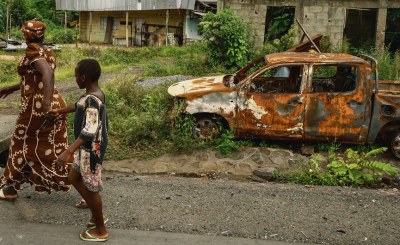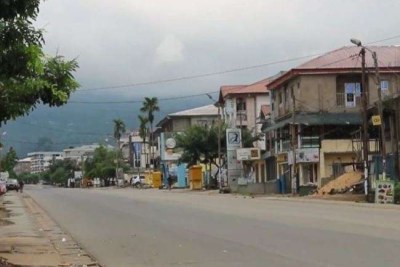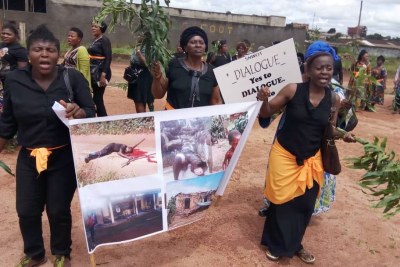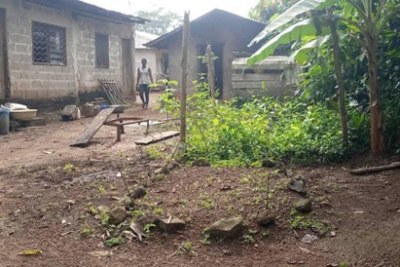-
Cameroon: Regional Councils Starved of Resources to Solve Anglophone Separatist Crisis
VOA, 19 May 2021
Cameroon's regional councils this week called on the central government to grant promised autonomy and funds that they say would help resolve the country's separatist conflict. The… Read more »
-
Cameroon: Sexual Violence Rampant As Anglophone Crisis Intensifies
DW, 19 May 2021
The UN documented more than 4,000 cases of sexual and gender-based violence in the volatile region in 2020. A thousand women are on hunger strike now to highlight the drawn-out… Read more »
-
Cameroon: NW/SW Reconstruction Project - PM Obtains Private Sector Adherence
Cameroon Tribune, 20 May 2021
This was during a maiden visit to GICAM yesterday May 18, 2021 to lobby for their support. Read more »
-
Cameroon: Cameroon National Day
State Department, 20 May 2021
On behalf of the Government of the United States, I congratulate the people of the Republic of Cameroon as you celebrate National Day on May 20. Read more »
-
Cameroon: PM Dion Ngute in South West
Cameroon Tribune, 20 May 2021
The Prime Minister was received at the Mungo gateway to the South West Region by several personalities of the Region Read more »
-
Cameroon: Special 20th May - Overcoming Mounting Challenges to Unity
Cameroon Tribune, 20 May 2021
Dissenting voices here and there, feelings of supremacy and inferiority resulting to disturbing surge in hate speech are pointers that the ship of national unity is far from being… Read more »
Cameroon Regional Councils Starved of Resources
Cameroon's regional councils this week called on the central government to grant promised autonomy and funds that they say would help resolve the country's separatist conflict. The regions have yet to receive a promised 20% of the state budget this year and the power to recruit state workers like hospital staff and teachers. Cameroon announced special status for its troubled Northwest and Southwest regions after a grand national dialogue called by President Paul Biya in 2019. The talks involved the government, youths, clergy, representatives of some separatist groups and others to find solutions to the crisis in the regions, where most people speak English. Participants decided that the two areas would have regional bodies responsible for economic, health, social, educational, sports and cultural development affairs.
The bodies were meant to give the regions more autonomy and weaken support for armed groups that want the regions to separate from the rest of Cameroon and its French-speaking majority. The government said it would give about 20% of its $9 billion state budget to the regions to manage. But so far, that hasn't happened. Atem Ebako, vice president of the Southwest regional executive council, says he has nothing to present as an achievement since he officially took office on January 21.
Meanwhile, the UN has documented more than 4,000 cases of sexual and gender-based violence in the volatile region in 2020. A thousand women are on hunger strike now to highlight the drawn-out conflict.
InFocus
-
Cameroon is asking civilians to return to towns in Francophone regions of the country after Anglophone separatists entered a French-speaking village in the West region and killed ... Read more »
-
To revive national cohesion, Cameroon's government needs a political solution that encourages active minority groups to lay down their arms and turn away from secession. For this ... Read more »
-
An attack on the village of Ebam in the South-West region was one of the worst by Cameroon's army in recent years, says Human Right Watch. On March 1, 2020, soldiers raped at least ... Read more »
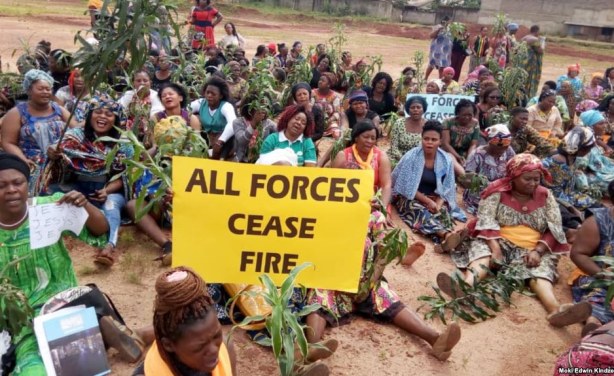
Women protest in Bamenda, Cameroon, in response to a Sept. 3, 2018, attack on the local Presbyterian School of Science and Technology, where six students were abducted.
